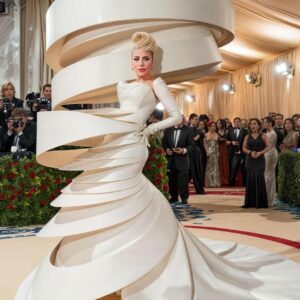50 Cent BACKS Katt Williams & Reveals Leeches Draining Black Artists
So it looks like 50 Cent and Katt Williams are on a mission to expose the entertainment industry leeches who are shortchanging Black artists and blocking them from building generational wealth…
But contrary to popular opinion, both 50 and Katt claim this is not a race issue…
In fact, Katt explicitly said it’s about God’s side and “the other side” and you already know which side is pulling the strings in Hollywood…
In recent revelations, prominent figures like 50 Cent and Cat Williams have reignited the conversation about exploitation and unequal treatment of black artists in Hollywood.

The issue was brought to light once again when actress Taraji P. Henson disclosed her experience of being undervalued financially in the industry, particularly in her involvement with an Oprah-produced project.
Henson’s revelation sparked a wave of discussions on social media, with many fans connecting the dots and pointing fingers at the alleged unfair treatment of black talent by industry elites, including Oprah Winfrey.
Despite claims that race isn’t the central issue, but rather a division between “God’s side” and the “other side,” the spotlight remains on the systemic disparities faced by black entertainers.
The narrative extends beyond Henson’s case, encompassing instances where black artists have felt sidelined or mistreated by powerful industry players.
One such example is rapper Ludacris, who felt publicly criticized by Oprah during a television appearance.
Similarly, comedian Dave Chappelle faced scrutiny from Oprah regarding his decision to step away from a lucrative deal, with Oprah seemingly dismissing his concerns.
The confrontations between 50 Cent and Oprah further fueled the discourse, with 50 Cent accusing Oprah of hypocrisy and catering more to white audiences than her original base of black women.
These clashes underscore a deeper tension within the industry, where black artists allege a lack of support and fairness in opportunities and compensation.
Furthermore, 50 Cent’s and Cat Williams’ actions speak volumes, as they not only vocalize their concerns but also actively support fellow artists who claim mistreatment.
Their gestures, such as offering collaboration opportunities or casting roles, demonstrate a commitment to addressing systemic issues within the entertainment industry.
The overarching sentiment among fans is a call for accountability and change.
Many express disillusionment with the facade of equality and opportunity in Hollywood, emphasizing the need for genuine support and fair treatment of black artists.
The conversation extends beyond race, touching on broader societal issues of exploitation and inequality.
As the dialogue continues, it becomes evident that the struggle for equitable representation and compensation in Hollywood transcends individual experiences.
It reflects a larger systemic imbalance that requires collective action and advocacy for meaningful change.
Whether it’s standing up against exploitation or offering solidarity to fellow artists, the voices speaking out against injustice are integral to reshaping the landscape of entertainment for future generations.
News
Lady Gaga Says Britney Spears Has ‘Changed the Course for Women’ in the Music Industry ‘Forever’
“You stood up for yourself and were so brave,” Lady Gaga wrote to Britney Spears after the end of the “Lucky” singer’s 13-year conservatorship PHOTO: KARWAI TANG/WIREIMAGE;…
Lady Gaga set to return to Las Vegas this summer for eight shows on her Jazz & Piano residency at Park MGM
Lady Gaga is putting back on her Poker Face for another round in Las Vegas. The New York City native, 37, is reviving her Lady Gaga Jazz & Piano residency for eight shows…
Why Lady Gaga Skipped the 2024 Met Gala
It’s been five years since Lady Gaga walked the Met Gala carpet, and while Little Monsters were hoping that this would finally be the year of the pop superstar’s…
AFTER “SWEEPING” THE RED CARPET, LADY GAGA AGAIN DAZZLED WITH A “MOVING” DRESS
In recent days, not only music lovers but also the audience of the big screen can’t help but sob when looking at Lady Gaga. Appearing as a star…
Lady Gaga on Feud with Ex-Friend Perez Hilton: It’s All ‘Rooted in Madonna’
“He’s just mad that I don’t want to hang out anymore because I don’t want to be around fake people,” the “ARTPOP” singer said of dissolving her…
Lady Gaga is glamorous on the red carpet at the Grammy Awards
Singer Lady Gaga with high hair, light makeup, and seductive off-shoulder dress appeared on the red carpet at the Grammy Awards ceremony. Lady Gaga appeared on the…
End of content
No more pages to load











